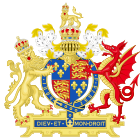Poor Act 1551 facts for kids
| Act of Parliament | |

|
|
| Long title | An Act for the Provision and Relief of the Poor. |
|---|---|
| Citation | 5 & 6 Edw. 6. c. 2 |
|
Status: Repealed
|
|
The 1552 Act for the Provision and Relief of the Poor was an important law. It was passed by the Parliament of England when Edward VI was king. This law was part of a series of rules known as the Tudor Poor Laws. It followed earlier laws from 1536, 1547, and 1549. Those older laws mainly focused on punishing people who wandered around without work, called vagabonds.
The Poor Act of 1552 created a new job called "collector of alms" in every local church area, known as a parish. Local leaders and people living in the parish chose two alms collectors. Their job was to ask for money, keep records of it, and give out donations to help poor people. If someone could give money but refused, parish leaders would "gently ask" them again. If they still said no, the matter would go to the local Bishop. Later, in 1563, people could be punished for not helping the poor. By 1597, helping the poor became a system of taxes, not just charity. Because it was thought all poor people would be looked after, begging openly was now against the law. However, in 1555, a new law allowed some people to beg if they had special badges.
Contents
Why This Law Was Needed
During the Tudor period (the time of the Tudor kings and queens), people's ideas about poverty began to change. In the past, some believed that being poor was a good thing, like a religious virtue. But new ideas from the Renaissance and a focus on hard work, called the Protestant work ethic, changed this view. Books and stories also started to show idle people and beggars in a bad light.
Changing Views on Poverty
As more people became poor, and helping them cost more, communities tried to decide who deserved help. They often limited support based on where people lived and how they behaved. People started to believe that being lazy, begging, or wandering around without a home was wrong. Instead, they valued hard work and taking care of one's money.
What Caused More Poverty
Many things led to more poverty during the Tudor period. Several events made life harder for many families.
Economic Challenges
- Bad Harvests: In 1549, there were rebellions that made it hard to harvest crops. This led to food shortages and higher prices in the years that followed.
- Money Problems: Between 1544 and 1551, the government made coins with less valuable metal. This made people lose trust in money and caused economic problems.
- Population Growth: The number of people grew quickly. This meant there were more workers than jobs, so wages for farm and factory work fell sharply.
- Land Changes: New rules about enclosing land meant that common land, which many poor people used, was taken over. This made it harder for them to make a living.
- Young Population: A large part of the population was too young to work and earn money.
Loss of Church Support
The dissolution of the monasteries was another big change. Before this, Catholic churches and monasteries ran many charities. They also had groups that helped people in need. When these were closed down, a lot of formal and informal help for the poor disappeared. It took a long time for new ways of helping people to be set up, and this process was often uneven across the country.
 | Precious Adams |
 | Lauren Anderson |
 | Janet Collins |

